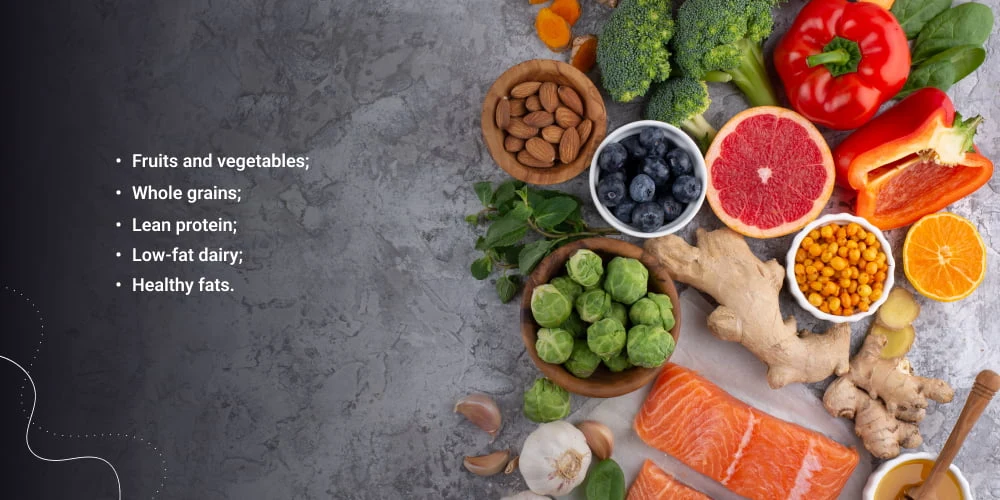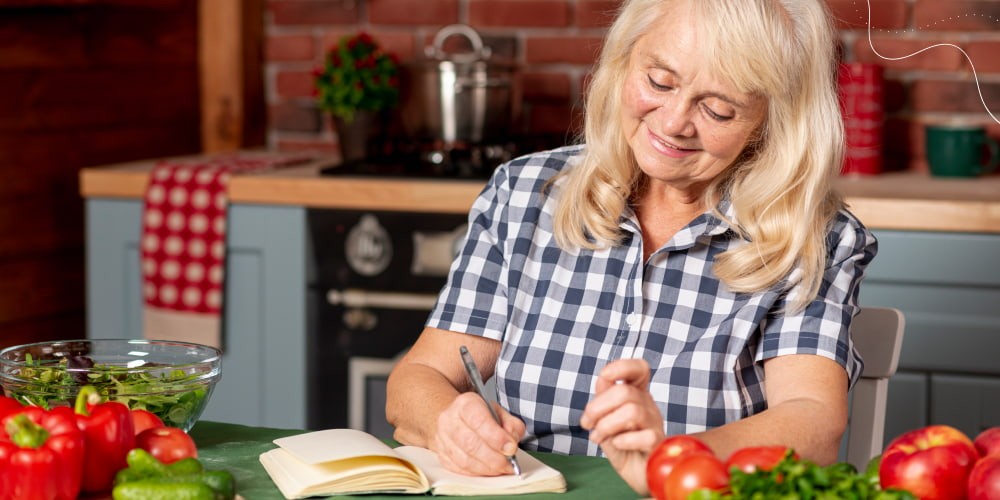

It is crucial for stroke patients to maintain a healthy diet . Eating nutritious foods can help reduce the risk of having another stroke and improve overall health. In addition to the fact that healthy food helps prevent a heart attack or helps patients get back on their feet faster after disease, healthy food is just as crucial for our daily lives. There is an expression ‘We are what we eat’ for a reason.
The quality of our life, activity, and general condition directly depends on what kind of food we consume. There are many different factors to consider when creating a diet for stroke prevention, such as:
In this article, we will explore the best diet strategies for reducing the risk of stroke. Stay with us and get valuable knowledge!
A healthy diet is essential for all aspects of your health, including your recovery after a stroke . Eating the right foods can help improve your strength and energy, control your weight, and manage other health conditions such as high blood pressure and diabetes.
There is no one-size-fits-all answer to this question. The best foods to eat after a stroke depends on your individual needs. Talk to your doctor or dietitian to develop a plan that meets your needs.

There is no specific “ stroke diet ” foods that you must eat. However, certain types of foods are generally recommended for people who have had a stroke. Most often, such food does not contain harmful fats, is rich in slow carbohydrates and gives a lot of vitamins and nutrients to the human body.
These include:
Our habits greatly influence our lives. It is enough to remove fatty foods and start exercising more. You will notice how you begin to walk without shortness of breath, and climbing to the fifth floor will not be such a problem. To improve your condition, you do not always need to buy expensive medications or look for a pill that will cure you of everything. It will be enough to change your eating habits, and the result will not be long.
What can help prevent a stroke? – it is a valuable article that helps discover more ways to avoid a stroke.
A person that has had a stroke may have difficulty eating due to:
If you are having trouble eating, talk to your doctor or a dietitian. They can help you develop a plan to ensure you get the nutrients you need. If you have difficulty swallowing, your doctor may recommend a feeding tube or other treatments.
If you can eat on your own, some general guidelines can help. These include:
The most important thing for any illness is to contact your doctor. Each organism is individual, and only a doctor can prescribe the correct and effective treatment for each patient.
Many different strategies can be helpful for people who have had a stroke. Some general tips include eating small meals more often, chewing food slowly and thoroughly, avoiding hard-to-chew foods, and drinking plenty of fluids. Additionally, limiting your intake of salt, sugar, and alcohol is essential.
Many resources are available online and in cookbooks, if you are looking for specific recipes. The American Heart Association website has a section dedicated to diets for patients with stroke , which includes many recipes that would be appropriate for people who have had a stroke.
The “EatWell” section of the Mayo Clinic website also has a variety of healthy recipes. There are also many cookbooks specifically for people with dietary restrictions due to medical conditions, including cookbooks for people who have had a stroke. Talk to your doctor or dietitian to find out which resources would be most helpful.

Some specific recipes that may be appropriate for patients who have had a stroke include:
These are just a few examples. Many other healthy diets would be appropriate for people after a stroke . Talk to your doctor or dietitian to find out which recipes would be most appropriate for you.
There are certain foods that stroke patients should avoid. These include:
It is also essential to avoid hard-to-chew foods, such as raw fruits and vegetables, tough meats, and crunchy cereals. If you have difficulty swallowing, talk to your doctor about foods to avoid.
There is no one-size-fits-all diet for stroke survivors. The optimum diet for you will be determined by your unique requirements. Consult your doctor or a dietician to design a plan that is appropriate for you. Fruits and vegetables, complete grains, lean protein, and low-fat dairy are advised as healthy eating.
It is also critical to minimize your intake of salt, sugar, and alcohol. There are several tools available to assist you in finding recipes that meet your new dietary requirements.
Furthermore, having only high-quality and competent help is critical. Call 214-619-1910 or use the contact button to do so.
The optimal diet for stroke prevention or recovery is one that is low in sugar, fat, and alcohol while being high in healthy fats, vitamins, and minerals. Meat, fruits, and vegetables are examples of these foods. You should never consume fast food, greasy meals, soda, or alcohol.
Brain cells begin to die within minutes of being deprived of oxygen and nutrition. A stroke can be caused by unexpected bleeding in the brain. A stroke is considered a medical emergency. A stroke can result in long-term incapacity, death, or irreversible brain damage.
A study by British and Italian researchers found that eating three bananas a day (breakfast, lunch, and dinner) provides enough potassium to reduce the brain’s blood clots risk by about 21%.
There is no such thing as a drink that has such an impact. However, there are some beverages that might harm your health. Alcoholic beverages, soda, and other drinks high in sugar and food coloring should be avoided or limited in your diet. Drink herbal tea, water, or natural juice diluted with water instead.